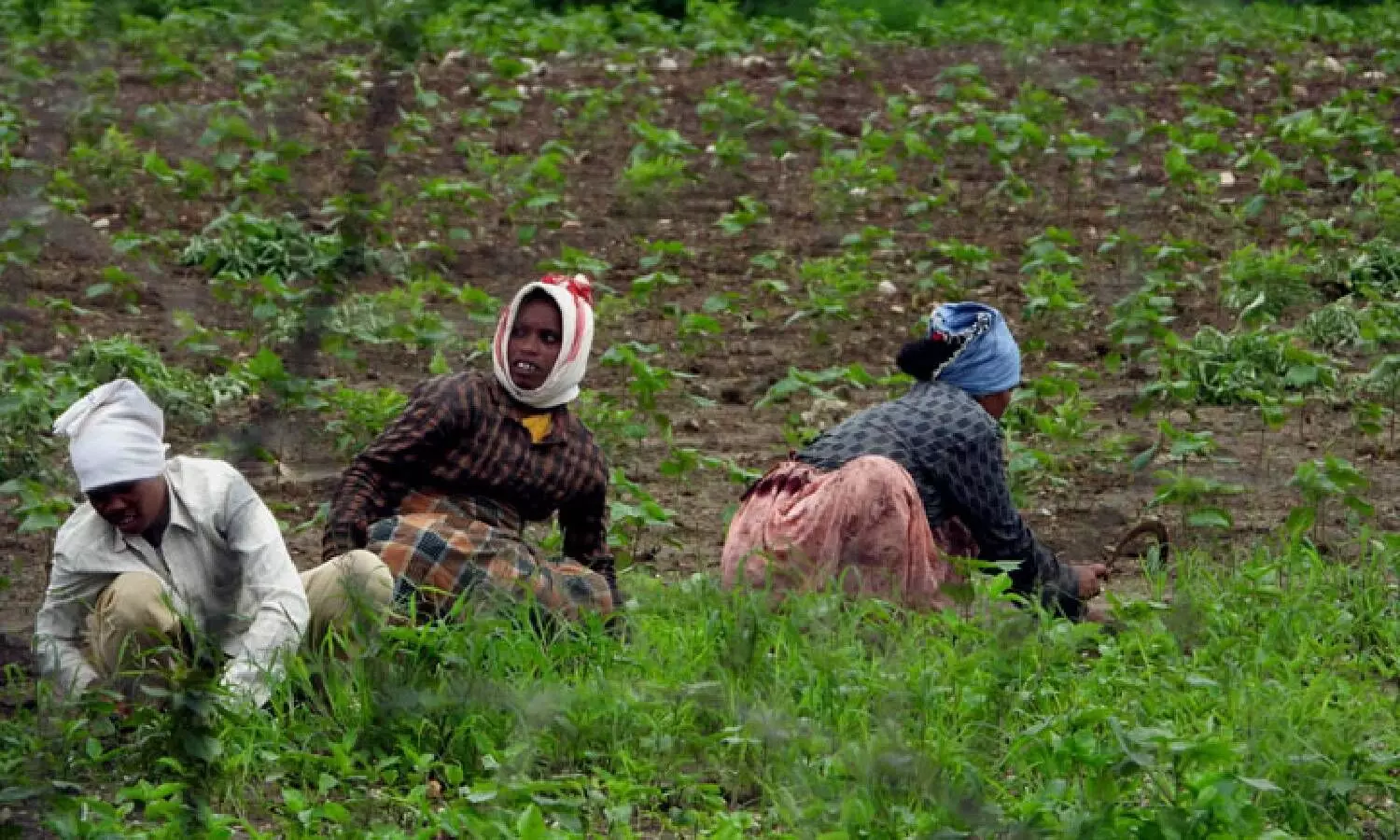Rythu Bandhu or Fasal Beema Yojana: Is Maha or TS a savior of farmers?
The comparison look justified as the area on either side of the Inter-State border is similar in nature of the soil, type of weather, and types of crops. There is a haunting similarity too in terms of farmer suicides.
By S. Harpal Singh
In June 2018 villagers from 32-gram panchayats of the neighboring Nanded district in Maharashtra had come up with a demand for a merger of their area with Telangana. The reason they wanted their villages to be included in Telangana was the alluring farmer welfare programs, chiefly the direct benefit transfer scheme, the Rythu Bandhu.
Four years down the line, the farmers living in Maharashtra all along the inter-state boundary with the erstwhile Adilabad district are scoffing at any idea of changing their geographical, political, or administrative alignment. The reason for this hinges on a perceived result of a comparison between farmer-oriented welfare programs initiated by the Eknath Shinde government in Maharashtra with those available here.
The comparison look justified as the area on either side of the Inter-State border is similar in nature of the soil, type of weather, and types of crops. There is a haunting similarity too in terms of farmer suicides.
"The current agriculture season characterized by crop damage due to excessive rainfall is a case in point," pointed out farmer Babu Rao Kendre from Bodhadi in Kinwat tehsil of Nanded district as he began to provide details of the changes in the crop insurance scheme, a scheme which is conspicuous due to its absence in Telangana.
Farmer Babu Rao Kendre in is cotton field which was damaged earlier in the season
"The Shinde government has not only raised the limit for crop loss compensation to three hectares from the previous two but has also increased the scale of compensation from Rs. 6,800 per hectare to Rs. 13,600 per hectare," he said.
"This means, a farmer claiming major crop loss in three hectares stands to receive about Rs. 40,000 as compensation," he summed up. "The crop damage parameters have also been changed in that farmers who lose 33 percent of their crop are eligible for insurance claim instead of the earlier 50 percent damage."
Telangana has pioneered DBT in the country by introducing the Rythu Bandhu scheme which has farmers enjoying a benefit of Rs. 10,000 per acre in two crop seasons. Other states have already replicated this scheme or are planning to do so in near future," claimed a senior farmer leader from the ruling Telangana Rashtra Samithi (Or is it Bharat Rashtra Samithi) party in Adilabad as he countered the farmer's claims.
Adilabad senior farmer leader B. Goverdhan Reddy (left) in an agriculture field
BJP MLA from Kinwat adjoining west Adilabad, Bimrao Keram, was all praise for the Shinde government. He said compensation for crop loss to the tune of Rs. 67 crore has already been disbursed in his constituency which, according to him was 'quick'.
BJP MLA from Kinwat in Maharashtra, Bhimrao Keram
"Our government launched farmer welfare schemes no sooner it assumed charge. It has earmarked Rs. 10,000 crores towards incentive of Rs. 50,000 per account for those farmers who repay their agriculture loans taken from cooperative banks," the MLA revealed.
"The scheme stands to benefit 20 lakh farmers," he added. "Isn't it prudent to protect the health of the cooperative societies while benefitting the farmers," he questioned by way of lauding his government.
Bodkuntwar Mohan, a farmer from Sunna in Pandharkawda tehsil of Yavatmal said, "Schemes in Maharashtra can be termed as prudent. For example, our government does not provide free power to the farming sector but believes that the subsidized supply of solar power units for farm pump sets is sustainable development as it reduces the burden of continuous power supply to the agriculture sector."
A subsidised solar power generating set up in a field in Maharashtra
"The government in Maharashtra not only facilitates Fasal Beema Yojana to help farmers in case they suffer a loss during natural calamities but gives compensation for crop damage caused by wild boars. The compensation paid through the Forest department ranges between Rs. 2,000 to Rs. 3,000 per acre," recounted another farmer Sama Sai Krishna Reddy of Wadoor in Bheempur Mandal of Adilabad district.
Sai Krishna owns and cultivates parcels of land in Wadoor as well as China Arli in the Yavatmal district of Maharashtra just across the inter-State border demarcated by river Penganga. His unique situation gives him the advantage of evaluating schemes being implemented on either side of the border.
Farmer Sama Sai Krishna Reddy standing this side of river Penganga. He owns agriculture fields across the river in Maharashtra.
"Then there are schemes like the PM Kisan Samman Nidhi Yojana and others offering subsidy for land development, purchase of micro irrigation paraphernalia like sprinklers, laying of approach roads to individual fields, construction of culverts on local streams, etc. Such schemes have been done away with in Telangana," he rued.
Cover photo: Farm labourers clearing a field of grass earlier in the season in Adilabad